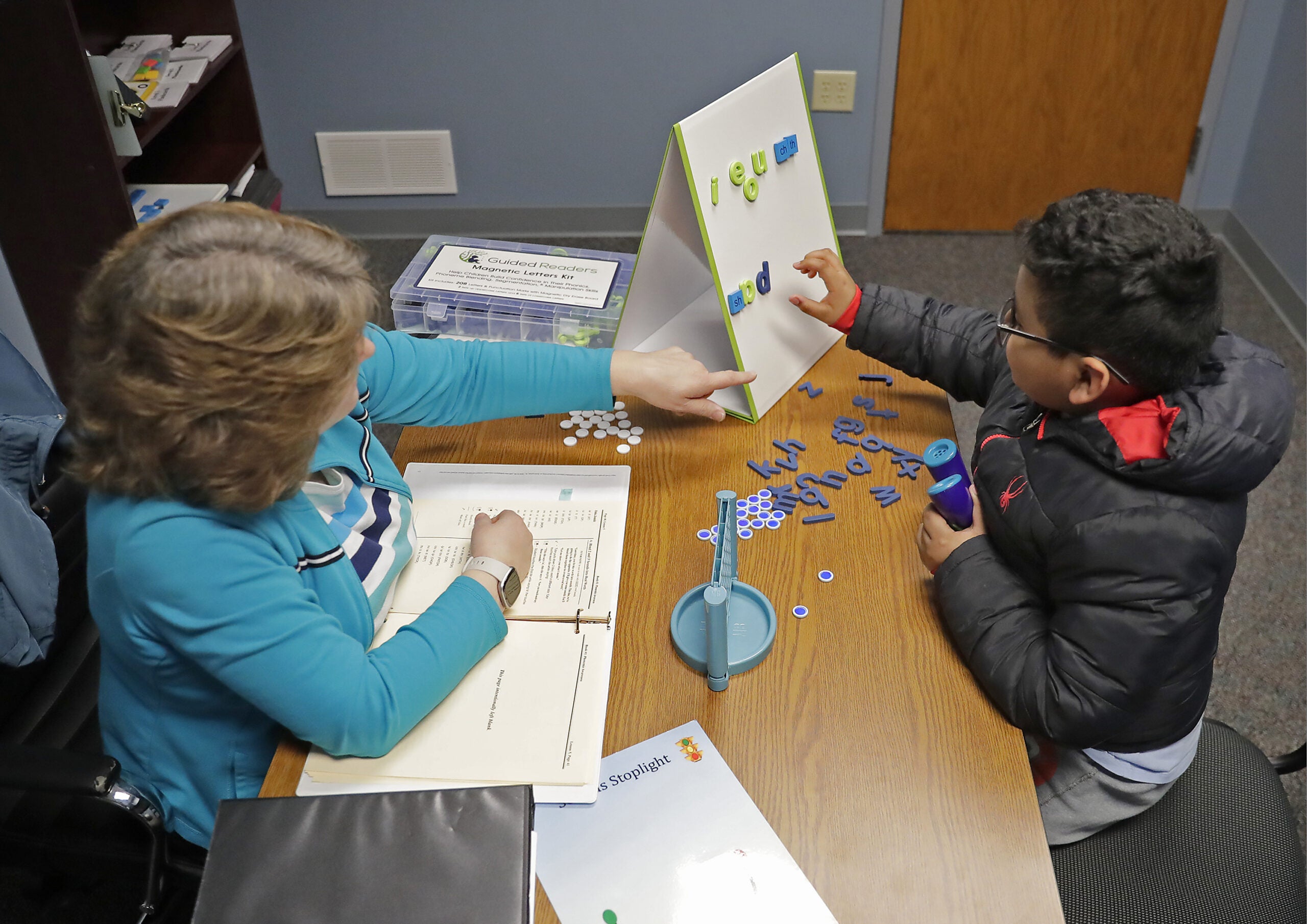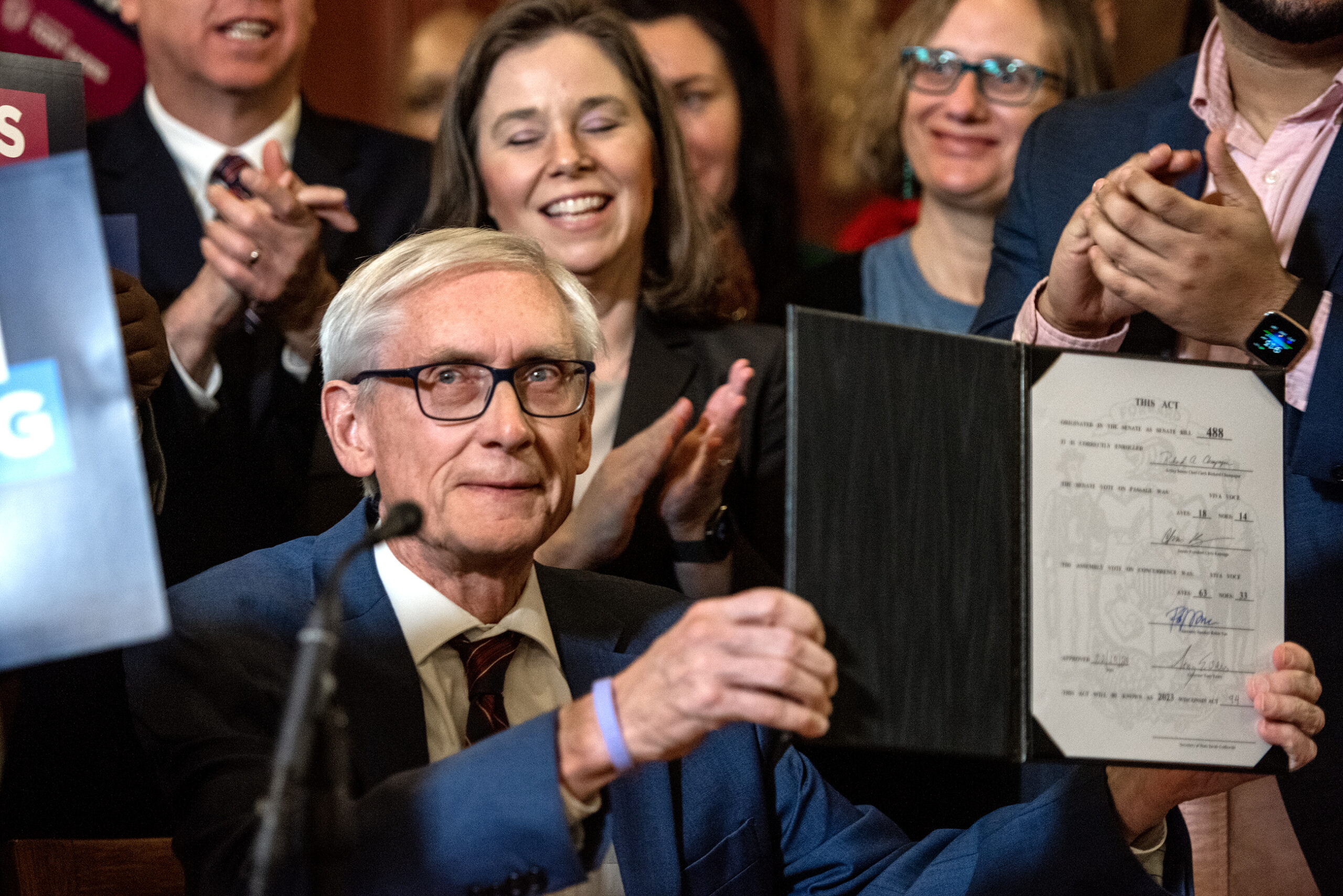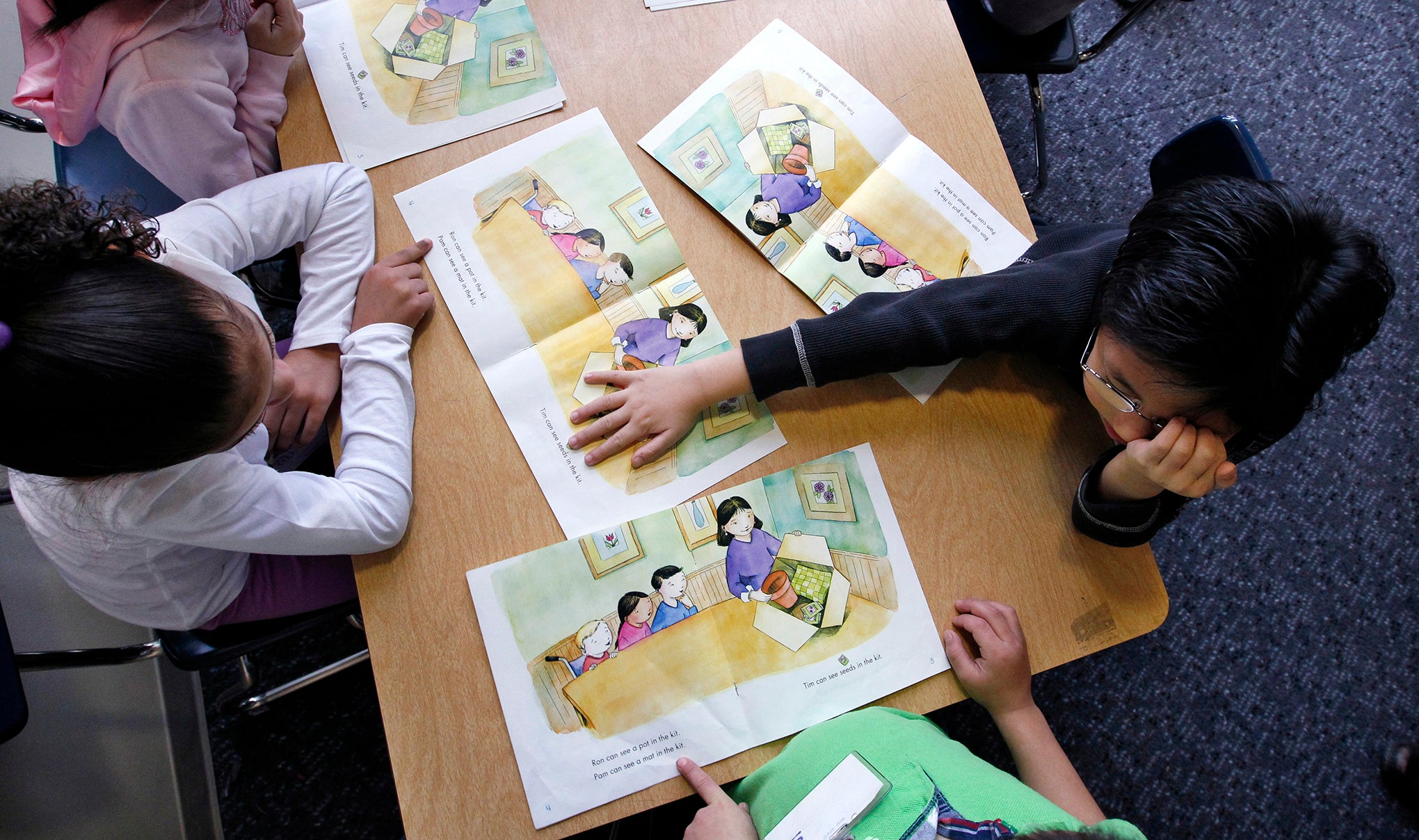The Wisconsin Legislature is suing Gov. Tony Evers and the Department of Public Instruction over literacy legislation passed last summer.
A February bill empowered the Joint Finance Committee to direct $50 million for specific early literacy programs. Those programs were included in a literacy bill approved by the Legislature last summer.
The lawsuit, filed Tuesday in Dane County Circuit Court, argues partial vetoes to that bill issued by Evers on Feb. 29 were unconstitutional.
News with a little more humanity
WPR’s “Wisconsin Today” newsletter keeps you connected to the state you love without feeling overwhelmed. No paywall. No agenda. No corporate filter.
Evers’ partial veto, known as Act 100, struck language allocating money for school boards and charter school compliance in the early literacy program.
The lawsuit argues the changes “will allow DPI to treat any money directed to it as money that can be used by the Office of Literacy for any literacy program that office deems fit.”
On March 7, DPI submitted a request to the legislature to release the funds set aside in the biennial budget in accordance with the partially vetoed version of Act 100.
Lawyers argue the Joint Finance Committee “can’t be assured the money will be specifically spent on literacy programs created in Act 20.”
“Instead, any money directed for that purpose might (but should not) be treated by DPI as well as its Office of Literacy as a blank check to do as it pleases, believing that it is under no statutory obligation to fund either a literacy coaching program or the grant program to offset the cost of purchasing new literacy curriculum,” the lawsuit states.
Lawyers for the Legislature are asking for a temporary injunction to stop DPI from spending any of the funds approved for literacy.
DPI said it won’t comment on the lawsuit.
Evers spokesperson Britt Cudaback said the literacy bill passed in July 2023 makes sweeping programmatic changes without funding to implement it.
The separate Act 100 passed in February was the appropriations bill, which Evers can line-item veto, Cudaback said. Cudaback said Evers removed the date that would have sunset a literacy coaching program.
Private choice and charter schools would have gotten a grant for curriculum and an ongoing per pupil funding increase under the original appropriations bill, Cudaback said.
“When the Legislature passes an appropriations bill, the governor can exercise line-item veto authority under the Wisconsin Constitution, and Republicans didn’t seem to have concerns about this concept until Wisconsinites elected and re-elected a Democratic governor,” Cudaback said. “This is yet another Republican effort to prevent Gov. Evers from doing what’s best for our kids and our schools—this time about improving literacy and reading outcomes across our state.”
The bipartisan reading bill, known as Act 20, is scheduled to be implemented in the 2024-25 school year.
Students will now be taught to read with an emphasis on phonics with the hope of addressing the state’s lagging reading scores.
Fewer than 40 percent of third graders were proficient in reading on the most recent Wisconsin Forward Exam. Wisconsin’s achievement gap between Black and white fourth grade students in reading has often been the worst in the nation.
The reading bill included spending $50 million to create a new literacy office, hire reading coaches and shift away from what has been known as “balanced literacy” to a “science of reading” approach.
The lawsuit is the second this week challenging the governor’s partial veto power.
Wisconsin Manufacturers & Commerce filed a suit Monday over a partial veto to extend a funding bump to public schools for more than 400 years.
Wisconsin Public Radio, © Copyright 2026, Board of Regents of the University of Wisconsin System and Wisconsin Educational Communications Board.







